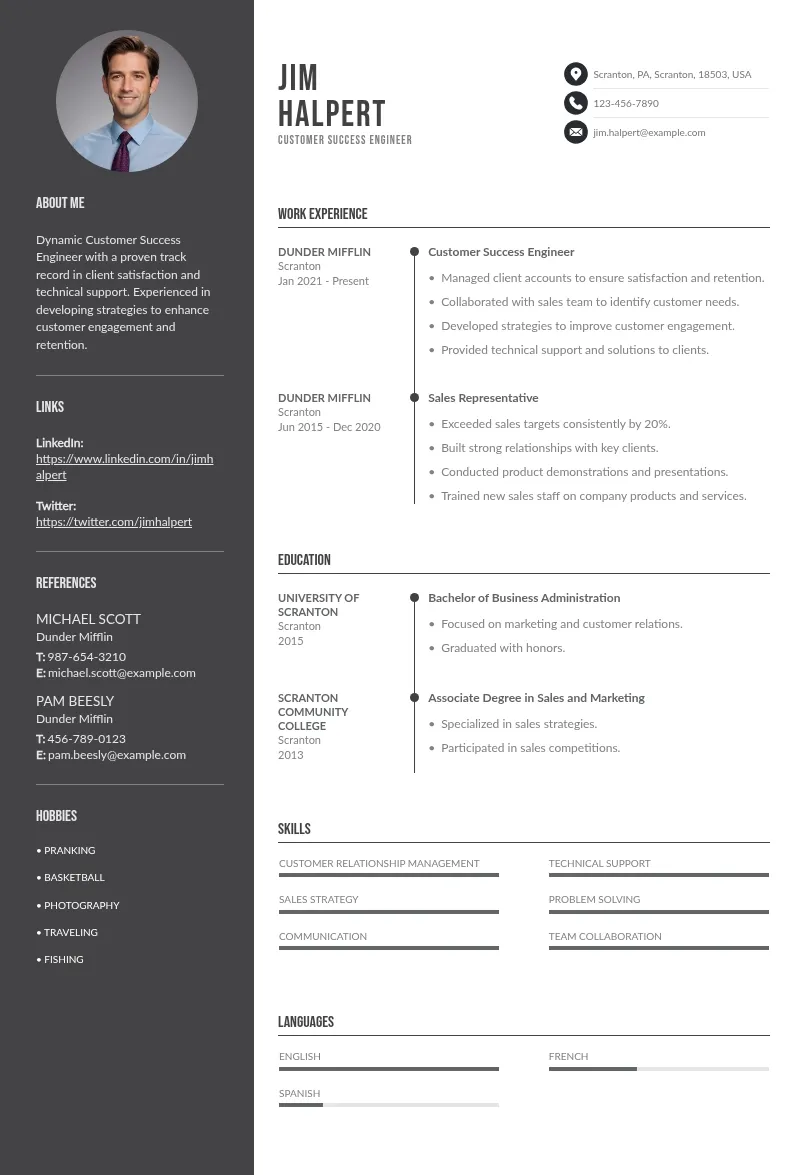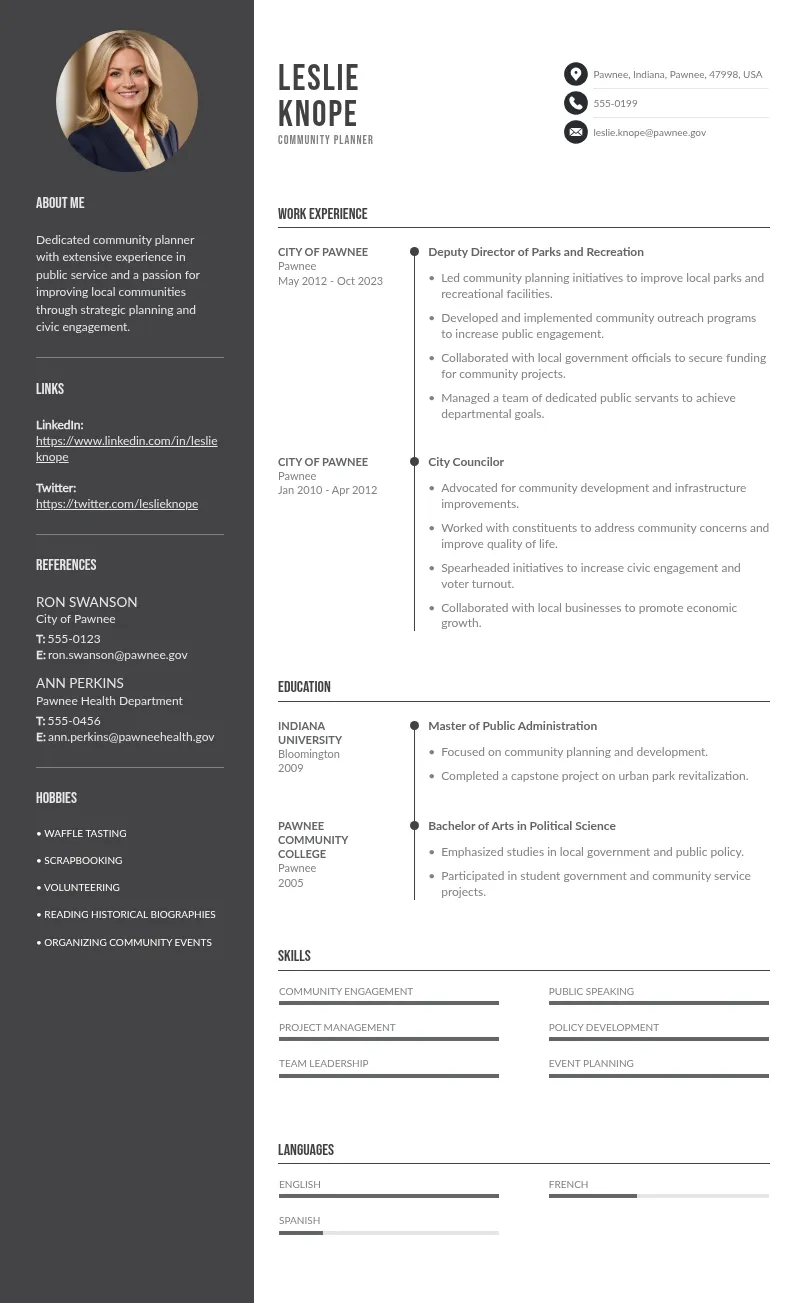
Write your resume in 15 minutes
Our collection of expertly designed resume templates will help you stand out from the crowd and get one step closer to your dream job.


The good news is that unrelated work experience isn’t a dealbreaker. In fact, it can be an asset if framed strategically. In this article, we'll explain when to include those roles, when to skip them, and how to transform them into standout elements of your CV.
Yes, you should include unrelated work experience on your CV if it highlights transferable skills, demonstrates growth, or fills gaps in your work history. However, leave it out if it’s completely irrelevant or your CV already features enough relevant roles to showcase your qualifications effectively.
When Should You Include Unrelated Work Experience on a Resume?
Unrelated work experience can still pack a punch on your resume if used strategically. Here are the key scenarios where unrelated experience can help you stand out to hiring managers.

1. When the Job Highlights Transferable Skills
Many previous jobs, even in an unrelated field, build skills that apply universally to various job positions. Think leadership, communication, problem-solving, or time management.
For example, supervising a team as an assistant manager in retail shows leadership and transferable skills, which are highly relevant to marketing positions or corporate roles. By making irrelevant experience relevant, you can help potential employers see how your past experience aligns with their needs.
2. When There Are Overlapping Duties
Even unrelated fields can share similar responsibilities. For instance, if you recently worked on social media for a local coffee shop, that past experience could align with a marketing career by showcasing your ability to engage audiences and drive visibility.
This approach makes lower-level tasks in your work history directly related to your current goals and career path. Highlighting these common threads prevents wasting precious resume space and positions your experience as relevant to the position.
3. When the Role Showcases Significant Achievements
Achievements from irrelevant work experience still speak volumes to hiring managers. For instance, exceeding sales targets or improving efficiency in a part-time job highlights your work ethic and ability to deliver results. Including these examples on your resume shows employers you’re an experienced professional who values performance, regardless of the field.
4. When You’re Building Experience
If you’re starting your career or changing industries, unrelated work experience is perfectly fine to include. High school or college jobs, such as tutoring, volunteering, or retail positions, can spotlight transferable skills like teamwork and adaptability.
Many candidates in the early stages of their career feel comfortable leaving out graduation dates or large portions of unrelated experience, but strategic inclusion can help you present a fuller picture of your professional growth.
5. When Leaving It Out Creates a Gap
Gaps in your work experience section might raise questions for potential employers. Including unrelated roles ensures a continuous timeline and helps avoid experience issues.
For example, a job in an unrelated field that spans several years can demonstrate your reliability and commitment. You can also trim large portions of the role while still showing steady professional work experience.

How to Include Unrelated Work Experience on Your Resume
Including unrelated work experience doesn’t have to feel like fitting a square peg into a round hole. With the right approach, even those seemingly offbeat roles can enhance your resume and show hiring managers your versatility and value. Follow these steps to make the most of your experience:
1. Study the Job Description
The job description is your cheat sheet. Look for keywords and specific skills that the employer is seeking. These clues will help you identify how your unrelated roles can align with the needs of the position.
For instance, if the job calls for problem-solving and multitasking, highlight how your previous roles involved handling complex situations or managing multiple priorities.
2. Focus on Your Transferable Skills
Think about the skills or accomplishments from your past roles that are universally valuable. Leading a team, managing a budget, or resolving conflicts are abilities that apply across industries and show that you bring something extra to the table. Transferable skills can bridge the gap between your unrelated experience and the job you’re aiming for.
3. Start with Everything, Then Trim
Begin by listing all your roles and responsibilities, even the unrelated ones, to create a complete work history. From there, remove what doesn’t add value to your resume. This initial “brain dump” ensures you don’t miss any hidden gems in your experience that could make you stand out.
4. Tailor Bullet Points to Match the Role
For each unrelated job, focus on achievements that mirror the skills and qualities mentioned in the job description. Instead of listing generic tasks like “took customer orders,” say something like “enhanced customer satisfaction by resolving complaints quickly and professionally.” Every point should tell the recruiter why you’re a great fit.
5. Combine or Group Roles Strategically
If you’ve held multiple unrelated jobs, consider grouping them into a single section, such as “Additional Experience” or “Professional Experience.” Use this section to emphasize themes like leadership, communication, or adaptability rather than the specifics of each role.
6. Trim the Fluff
Your resume should be concise, ideally one page unless you have years of experience. After tailoring the bullet points and grouping roles, go back and remove anything repetitive or irrelevant. Keep the focus on what’s impactful and relevant to the job you’re applying for.
7. Showcase Growth and Adaptability
Unrelated jobs tell a story of growth, showing how you've developed into a more well-rounded professional. Highlighting this evolution ensures hiring managers see how each position contributes to your overall qualifications as one candidate's career develops.
For example, working in retail might have taught you patience and customer service, which can be a huge asset in roles involving client relations. Use your resume to highlight how you’ve evolved into a stronger candidate.

CV Makeover Using Unrelated Experience
Transforming relevant experience on your resume ensures even past roles align with your career goals, making your skills stand out.
The Candidate
A former retail associate is now applying for a position as a marketing coordinator. Their experience feels unrelated, but with a strategic makeover, their CV can demonstrate transferable skills and relevant accomplishments.
Before
After
The Candidate
A former barista is now applying for a project management position. Their role feels disconnected, but strategic reframing highlights transferable skills like time management, organization, and leadership.
Before
After

Conclusion
Your resume is more than a list of jobs; it’s your story. By strategically including unrelated work experience, you can highlight your versatility, adaptability, and transferable skills. Every role has value if you frame it right, so own your journey and make it shine.

















